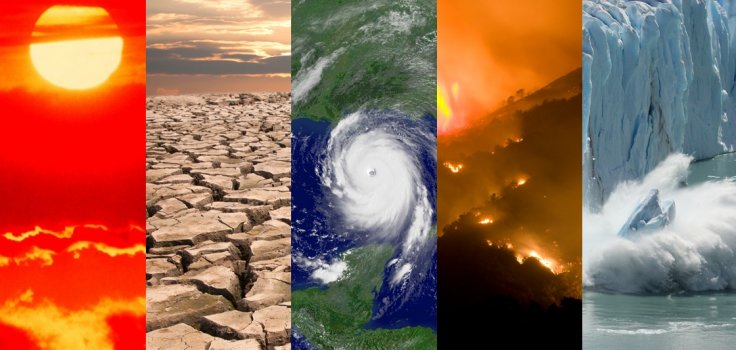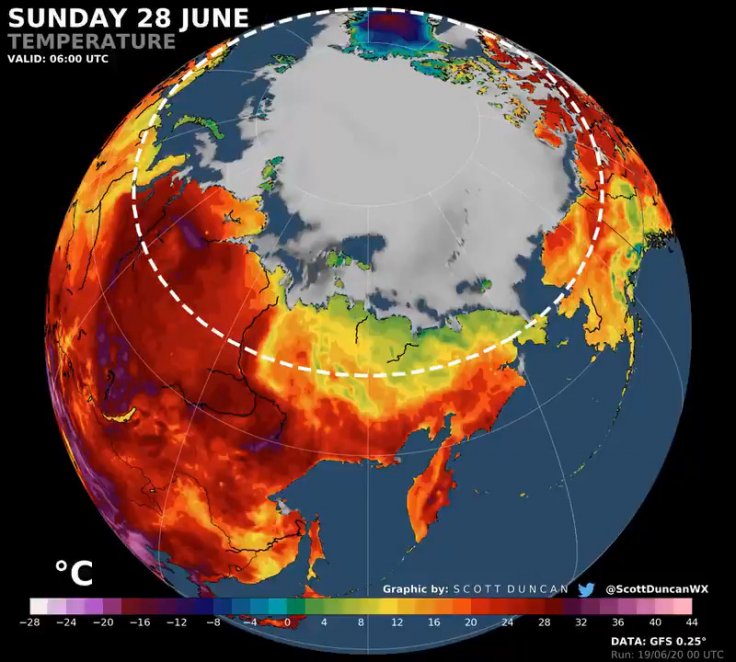As Siberia recorded the warmest temperature this year, Greenland lost a massive amount of ice caps and Canada sliding into the ocean, the world leaders during this week's annual United Nation's meet have warned that--If COVID-19 doesn't kill us, climate change will.
While focusing on the US wildfires and the loss of ice chunk in Greenland, Fiji's Prime Minister Frank Bainimarama said that the world is already witnessing "a version of environmental Armageddon." It was supposed to be the year "we took back our planet," but the Coronavirus pandemic has diverted the attention from the real threat the world is facing.
Understanding the threat of sea-level rise on the island countries, the Alliance of Small Island States and the Least Developed Countries Group said during the UN meet that in another 75 years, many members may no longer hold the seat in the UN if the world doesn't change the course.

The Threat Is Bigger Than Coronavirus
As the novel Coronavirus continues to dominate the entire world, there is one small place that doesn't have a single case of COVID-19—the Pacific island nation Palau, in Oceania. But as per President Tommy E. Remengesau Jr., the country is under continuous risk of being submerged, due to the sea-level rise.
Prime Minister of Tuvalu Kausea Natano, during his UN speech, said that the Oceania country with just more than 11, 500 population is free of Coronavirus infection, but the pandemic appeared when the country was just recovering from the destruction caused by tropical cyclones. The highest point of the country just a few meters above the current sea level.
Natano said that even though the combatting Coronavirus pandemic is the current priority of world leaders, the climate change issue remains "the single greatest threat to the livelihoods, security, and well-being of the Pacific and its peoples in the long run."
David Kabua, the president of another small Oceania nation, Marshall Islands, which has zero SARS-CoV-2 cases, said that change relies on safeguarding the most vulnerable because those on the forefront – whether healthcare workers battling the global health crisis caused by COVID-19 or "small island nations sounding the alarm on climate change – are critical to the survival of us all" and there is no time for such small island countries to wait for "paper promises."

Urgent Plea
Africa, which has been under massive health risks over the years, also asked for urgent help in terms of climate change. The president of Nigeria, Issoufou Mahamadou said, "In favoring solutions based on the respect for nature, we're also preserving the health of our peoples." Scientists estimate that in the south of the Sahara region the temperature will increase 1.5 times higher than the world average.
Even Kenyan President Uhuru Kenyatta said during the UN meeting that "our global home that was teeming with millions of species" is slowly dying and now the world is "yearning for us to stop its ruin."
Apart from the world leaders Sir David Attenborough, who is a well-known naturalist has recently explained how the world is going towards mass destruction. He also warned that by 2100 people would witness the several catastrophic scenarios unless humans save the planet.
He explained that our natural world is fading and the evidence is all around. As per Attenborough, if humans do not take any action as soon as possible, it will lead the human civilization towards massive "destruction," and the catastrophe will be "immeasurably more destructive than Chernobyl."









